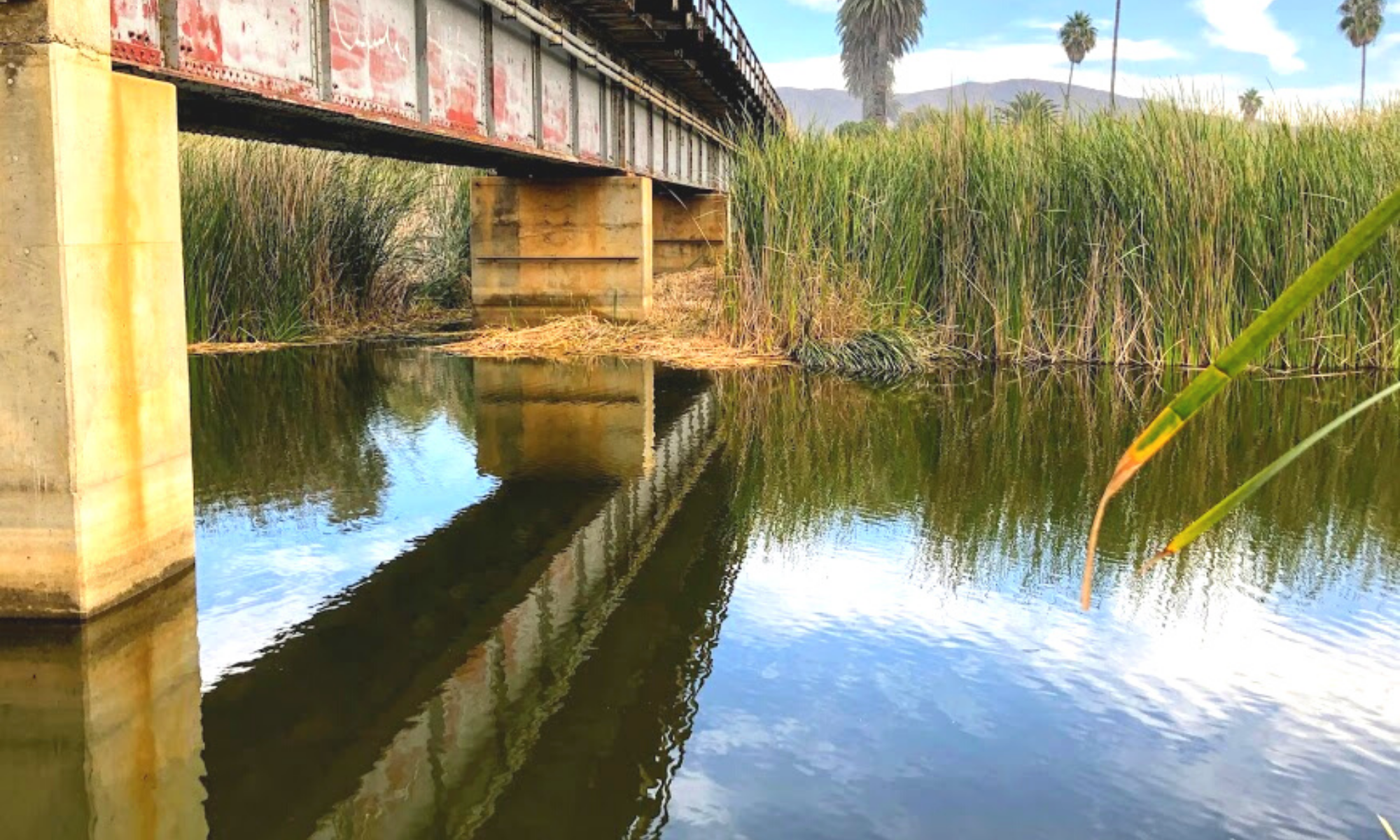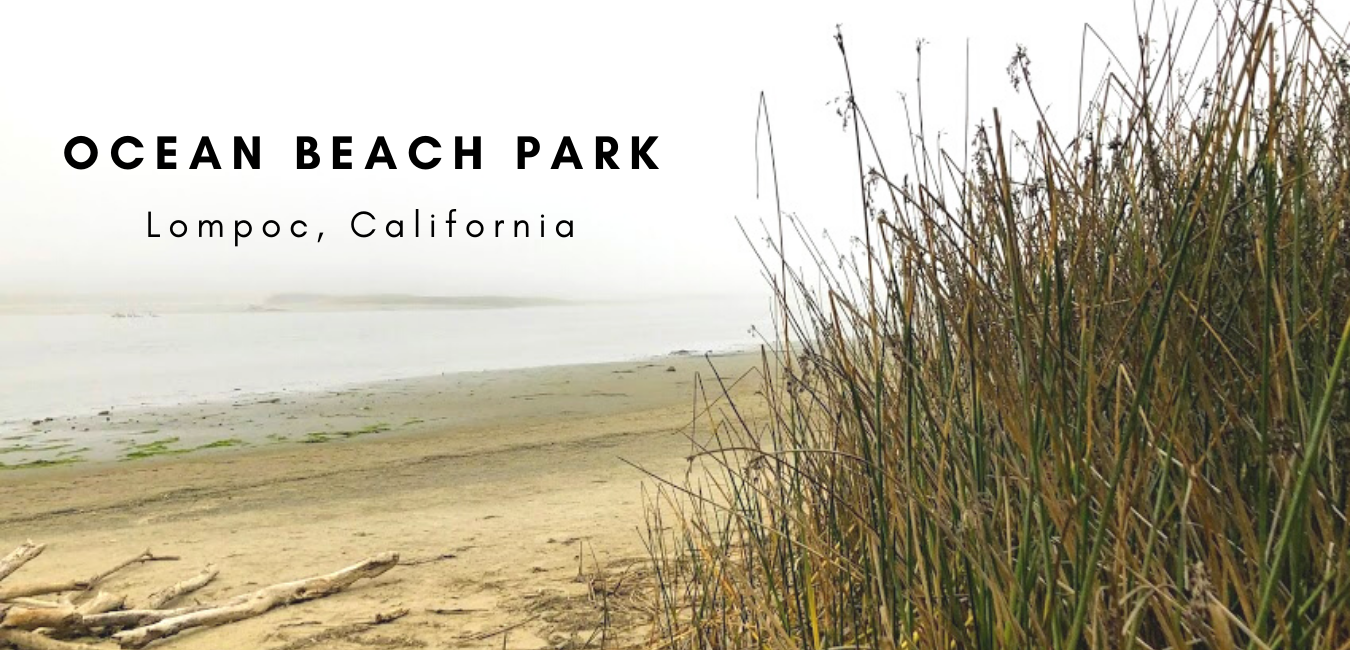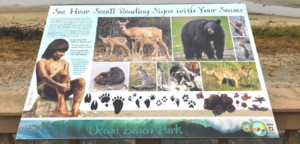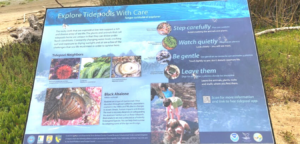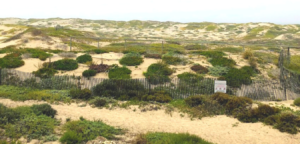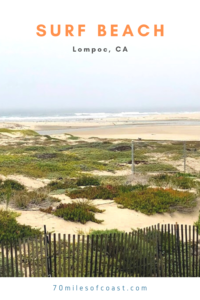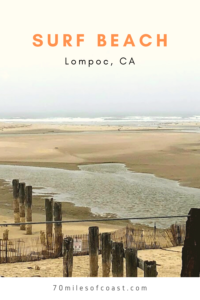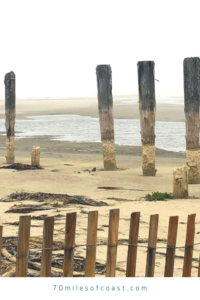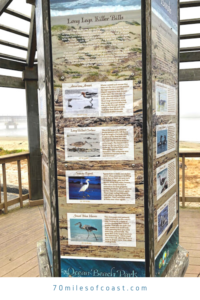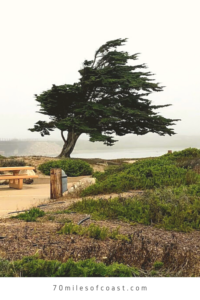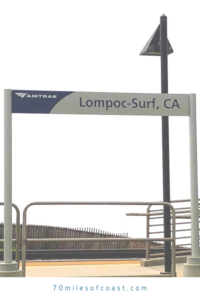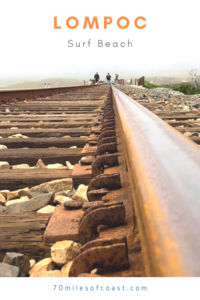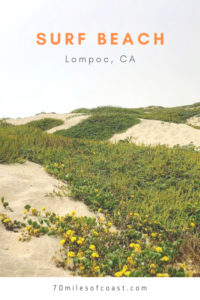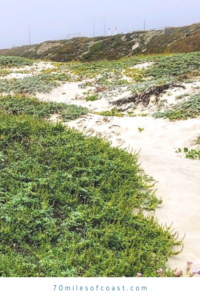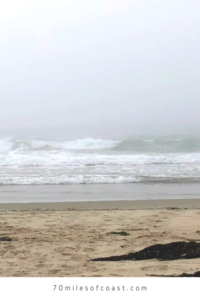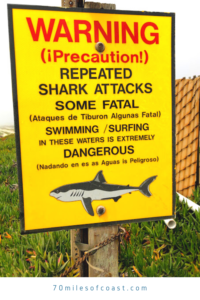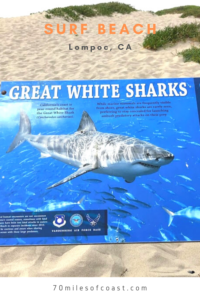Did I ever mention that my husband is originally from Lompoc? It is an inside joke between us- a small-town boy meeting a city girl. So, where is Lompoc, which is pronounced LOM-poke? Located 268 miles northwest of San Diego, Lompoc is often referred to as the flower seed capital of the world. The town was established in 1888 and is located in Santa Barbara County on the Central Coast of California. It is a small agricultural town that the Vandenberg Airforce Base surrounds. I informed my husband that if we were to visit, my one desire was to go to the ocean. So we went to Ocean Beach Park in Lompoc, CA, and I am here to share.
Table of Contents
Why Lompoc?
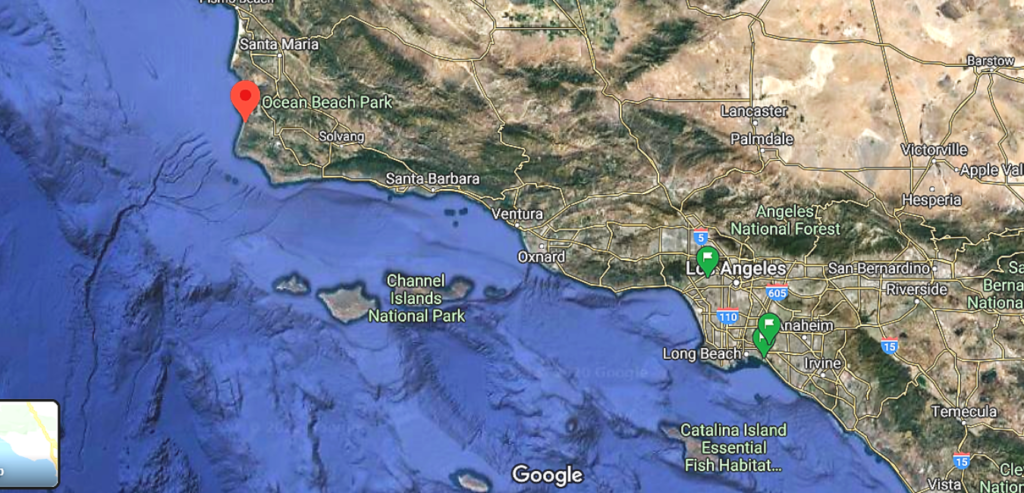
A little back story-We just celebrated our 25th Wedding Anniversary this past July 4, so we decided to go to Las Vegas to commemorate the joyous occasion.
It was nice to revisit where we were married (Treasure Island) and reminisce. On a side note, it was not pleasant to go to Las Vegas during Quarantine in 2020, but that is not what this post is about, so I digress.
After we were done with the ridiculous heat of Nevada (100 degrees plus), we headed northwest for six hours to see family in Lompoc. As a rule, it is almost always chilly and overcast there. And to say that I was looking forward to not being so hot is an understatement!
Noting that we were only in town for less than a day, I thought having the family meet us over at Ocean Beach Park for a pizza picnic would be an outstanding idea.
It was perfect timing without even knowing just how lucky we were. If this had been any other time before 2020, we would not have been able to enter Ocean Beach Park.
Ocean Beach Park and Surf Beach Essential Information
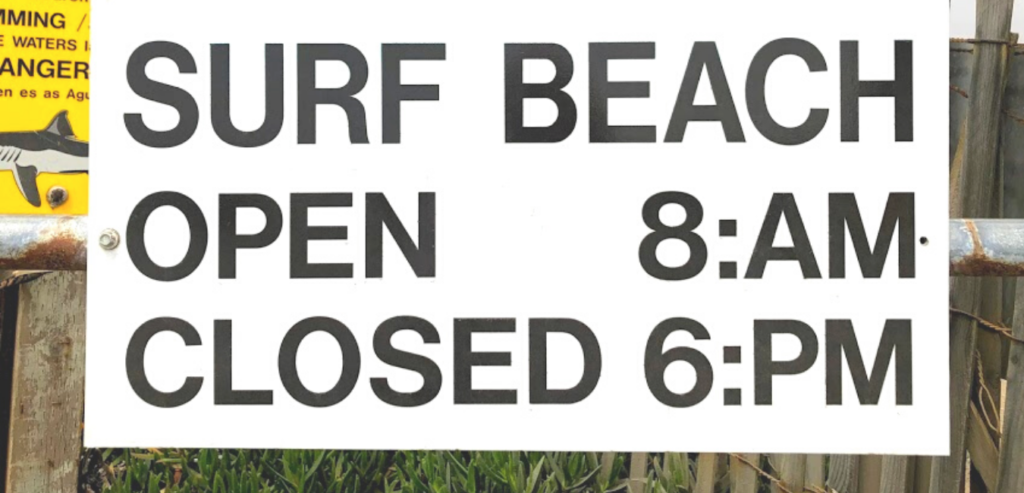
Maps–
Hours- 8 am to 6 pm
Owners- Vanderberg Space Force Base, Federal Land- patrols over 33 miles of coastline
30th Space Wing Public Affairs Beach Management Plan-
- Commander Anthony Mastalir
- (805) 606-3595
Of Particular Note
One endangered species, the California least tern (Sternula antillarum browni), and one threatened species, the Western snowy plover (Charadrius nivosus nivosus), utilizes the beach here.
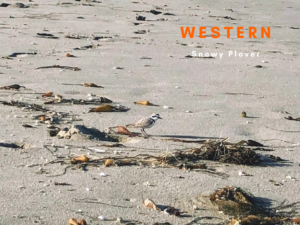
Each uses the sandy dunes, duned-back beaches, salt pans, pocket beaches, and the river mouth as nesting habitats.
Both species are considered indicators of the health of the coastal beaches and ocean environments. If they thrive, it means the coast is thriving.
Only one-half a mile of beach is open during the nesting season.
My Lompoc Reflection
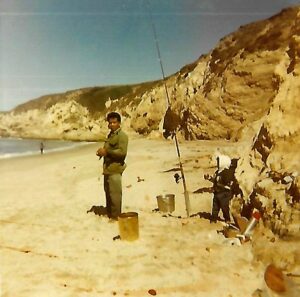
First off, for fun, what does Lompoc mean?
According to the Chumash Tribe, the region’s earliest inhabitants, Lompoc originates from the words “Lum Poc,” which means ‘stagnant waters or ‘lagoon.’
Another unique characteristic about Lompoc is how it rests in such proximity to Vandenberg Air Force Base.
Have you ever listened to a rocket launch before? Especially one you had no idea was to be launched in the middle of the night?
I did in 2001, and my oh my, was that an experience I will never forget! One word comes to mind, LOUD! Or better yet, EXTREMELY LOUD!
Though I have only been to Lompoc about a dozen times, I feel like I have lived there my whole life.
Well, not exactly.
Please let me explain.
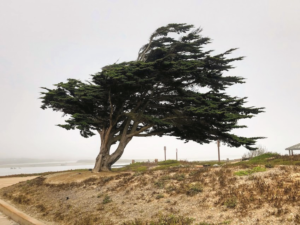
I have known my husband for over 33 years now.
He was born and raised in Lompoc and has shared fond memories of growing up in the region.
Being the beach and ocean-obsessed girl I am, I kept asking him how he compared surf Beach to San Diego beaches. He would always answer me: ‘it’s cold, and the water is rough.’
Yes, the beach next to Lompoc is perpetually overcast and chilly.
Don’t get me wrong; he did go to the beach. His family would fish for surf perch at Surf Beach very frequently, so there is that (see photo above)
In essence, you could say that my husband grew up on the beach just like I did, only in a different way and much less obsessed with the ocean than I am.
Vandenberg State Marine Reserve
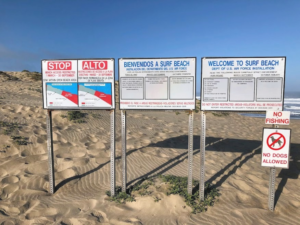
In September 2007, the waters offshore of Surf Beach were designated as the Vandenberg State Marine Reserve (SMR).
The Reserve spans over 32.84 square miles, with several habitats on the beach to explore:
Surf Beach Habitats
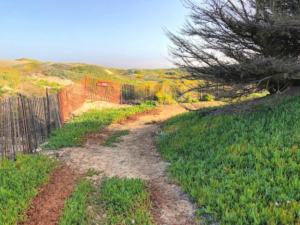
- central coast dune scrub
- central coast foredunes
- coastal strand
- coastal dunes
- freshwater marshes and ponds
- coastal dune riparian woodland
- rocky intertidal reef
All marine life is protected here, so fishing or taking live marine organisms is not permitted. Be extra cautious while examining the tide pools.
Activities allowed here (unless stated otherwise) include kayaking, snorkeling, diving, swimming, and beachcombing (you may take no driftwood).
Exploring Ocean Beach Park in Lompoc, CA
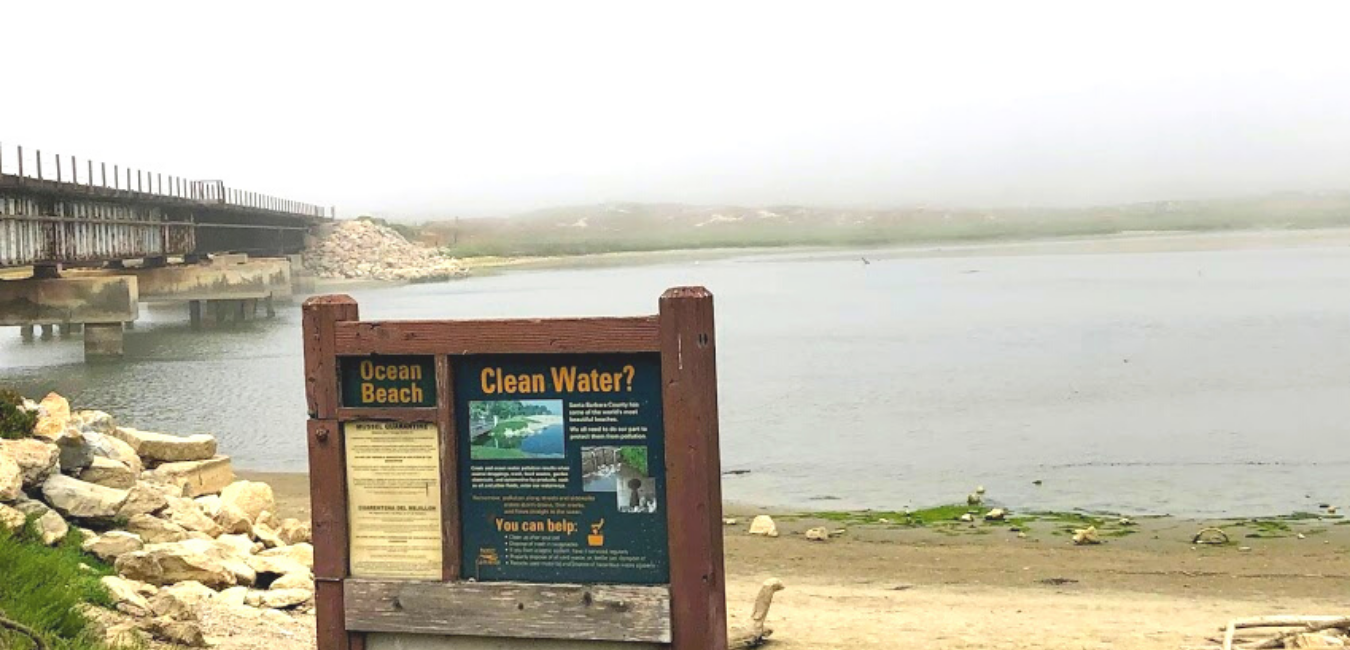
Amenities at Ocean Beach Park –
- The Santa Ynez River and Estuary- birdwatching spot
- picnic tables and BBQs
- a good-sized parking lot
- children’s playground
- a gazebo and an observation deck with informative placards and a telescope for bird viewing
- train trestle
- restrooms
Ocean Beach Park is located at the mouth of the Santa Ynez River and Estuary. The Santa Ynez Estuary covers nearly 100,000 acres on the northern Santa Barbara County coast, just north of Point Concepcion.
A brand-new estuary observation deck with several informational signs demonstrates the fascinating flora and fauna. The deck is also a great place to sit and view the birds inside the inlet.
A hiking trail is also open between Ocean Beach Park and Surf Beach that runs right behind the Western snowy plover nesting areas.
When we visited, the tide was relatively low to see more of the area than usual.
#Click on any photo to enlarge-
I appreciated that I observed the Santa Ynez river inlet connection to the ocean, as a sandspit usually blocks its flow.
At the time of our visit, the tide was coming in. I wonder what it would look like during a higher tide.
Isn’t the Monterey cypress (Cupressus macrocarpa) extraordinary? The tree is native to the Central Coast of California. Like the Torrey pine tree in San Diego, the Monterey cypress becomes gnarled, twisted, and wind-sculpted due to its native range being right on the coast.
On another note, I question what these wooden pilings used to support.
Does anyone have any idea?
If so, please comment below.
A Closer Look at The Ominous Surf Beach – Lompoc, CA
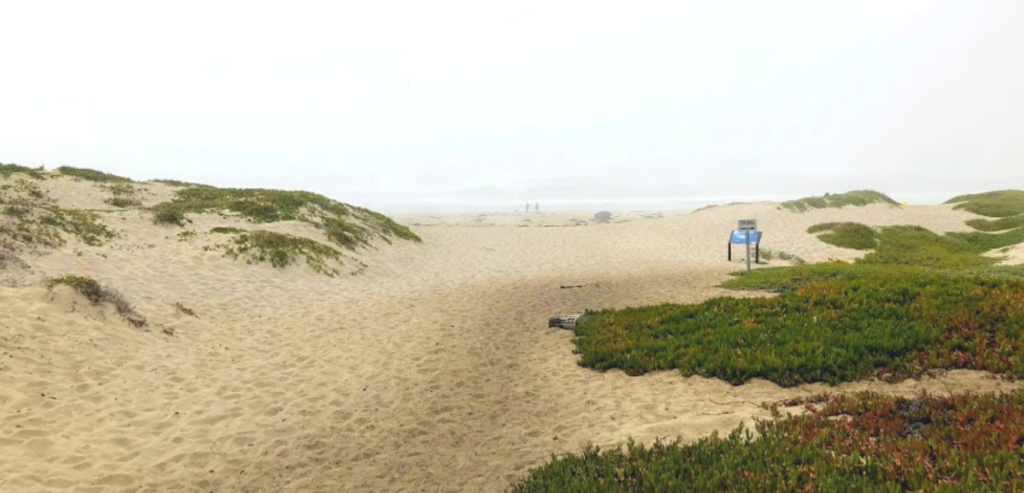
Surf Beach is only one-half of a mile from Ocean Beach Park. The parking lot is mid-sized, and there is a restroom. Caution is given, as there is no lifeguard on duty here.
Now here is the big news!
Something fantastic happened in 2020 (it’s true!) as this was the first year Surf Beach and Ocean Beach Park were open to the public.
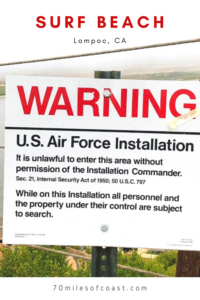
A little backstory-Starting in 2000, Surf Beach was designated as Federal Preserve because of the presence of the Western snowy plover, considered a threatened species. Mating and nesting occur from the beginning of March until the end of September.
It has been noted that the Western snowy plover nests on 12 miles of the 35 miles of the Vandenberg coastline.
Historically, the Air Force would close down the entire area (Ocean Beach Park and Surf Beach) after 50 violations were given out at each location. On average, those violations accumulated fast.
So what does that mean? The Lompoc community could not enjoy the coast during the summer, and Surf Beach was closed every summer between 2012 and 2018.
How Much Are The Fines?
You can expect a $5000 trespassing fine in Federal Court for those who cross the restricted area. And If you were to harm any nests or chicks, violating the Endangered Species Act, you could face a $50,000 fine and imprisonment for up to one year.
Surf Beach Is Now Open Year Round!
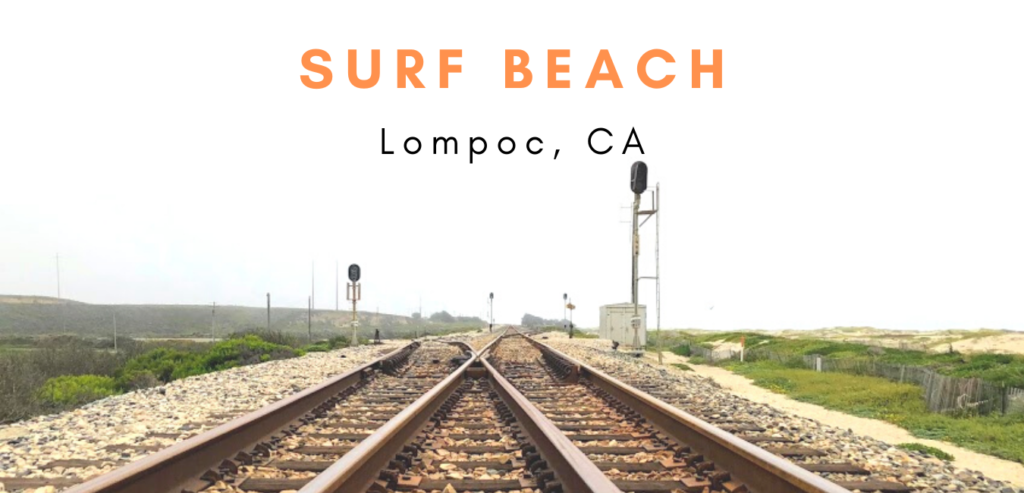
In 2019, with the help of the Mayor of Lompoc, Jenelle Osborne, and city council leaders, they sent a letter to the California Coastal Commission expressing the desire for public access to the beach year-round.
Long story short, it worked, and now the residents of Lompoc have their beach back year-round!
I was so delighted to read about how all of this transpired. It was very encouraging and inspirational to see what critical timing, a strong will, and a lot of determination can do for you and others.
If you would like a more detailed explanation, please click on the above link.
Surf Beach Rules
Because there is a threatened and an endangered species on this beach, the rules here are extremely tough-
Absolutely NO–
- pets off-leash
- horses or ATVs
- kite-flying
- littering
- fireworks
- fishing
- no feeding wildlife (the squirrels here have no fear whatsoever)
- beach fires
- camping
Let’s now take a look at Surf Beach in Lompoc, CA!
Amtrak’s Lompoc-Surf Station
Amtrak’s Pacific Surfliner stops here twice daily on its 350-mile journey between San Diego and San Luis Obispo. What a fabulous place to sit and wait for a train!
The Lompoc-Surf Station is unstaffed, and there is unattended short and long-term parking available in the station parking lot. Click on the above link for more detailed information.
The Federally Protected Nesting Habitat of the Western Snowy Plover
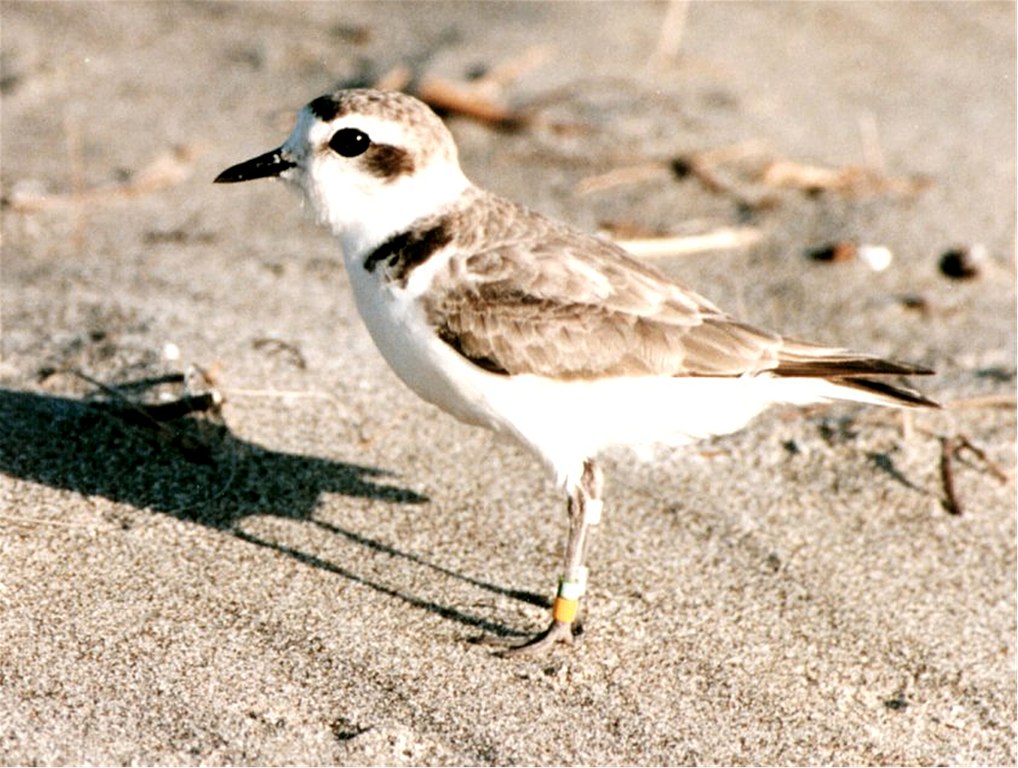
Once crossing the train tracks, you will be met by a volunteer docent stationed at the entrance to ensure that the public knows that only a limited amount of coast is available to explore.
The descent down to the beach is steep, so caution is given. There are many dunes at the entrance to explore if the area is not roped off.
The Dangerous Waters of Surf Beach
The ocean waters at Surf Beach are hazardous, so I would suggest not entering the water unless you are a very experienced swimmer. And remember, there is no lifeguard here.
So why are the waters offshore of Lompoc so dangerous? How about combining solid currents, a rocky shoreline, fog, and sharks?
Referring to the Google Map above, Surf Beach is a relatively long, straight northwest-facing beach.
Longshore Currents
The waves here come in at an angle. Because of this, powerful longshore currents run parallel to the shore.
Longshore currents vary and depend on the size, strength, and direction of the approaching swell and the length of the beach. The more remarkable the swell and the longer and straighter the beach is, the more solid and fast the longshore current will be.
So discretion is given; only experienced swimmers and surfers should enter the water here at Surf Beach.
Surf Beach and Great White Sharks
Surf Beach is one of the most shark-dense zones on the West Coast of the United States and the fifth most shark-infested surf spot globally.
Wow! The fifth in the world? How did they come up with that number?
Surf Beach holds the highest ratio of encounters to fatalities. Since 2010 there have been two fatalities, both occurring in October and two in two years!
If we were to use San Diego County shark casualties as a comparison, there have been two in 61 years; one in 1959 and another in 2008. (See provided link for more information.) And remember, I am comparing the entire San Diego County coastline to just one small beach on the Central Coast of California.
Down below are the most recent great white shark interactions at Surf Beach. Notice that the two shark attack fatalities occurred precisely two years and a day apart.
Recent Surf Beach Shark Attacks
- Kyle Knapp, September 7, 2008- was sitting on his surfboard when he was hit from behind. The surfboard that was in between the two is what saved him from being bitten
- Lucas Ranson, October 22, 2010- age 19, was surfing 100 yards from shore when he was attacked from underneath-fatality
- Francisco Solono Jr, October 23, 2012- age 39, was attacked from underneath while surfing-fatality
- name withheld, October 2, 2014- was out surfing 1.2 miles north of Surf Beach when a shark violently knocked him off of his board- he had several bite marks and a broken patella
- Ryan Howell, October 3, 2014-was fishing from a kayak and was thrown out of his boat when a great white shark came up from underneath and almost entirely came up out of the water.
Shipwrecks off Surf Beach
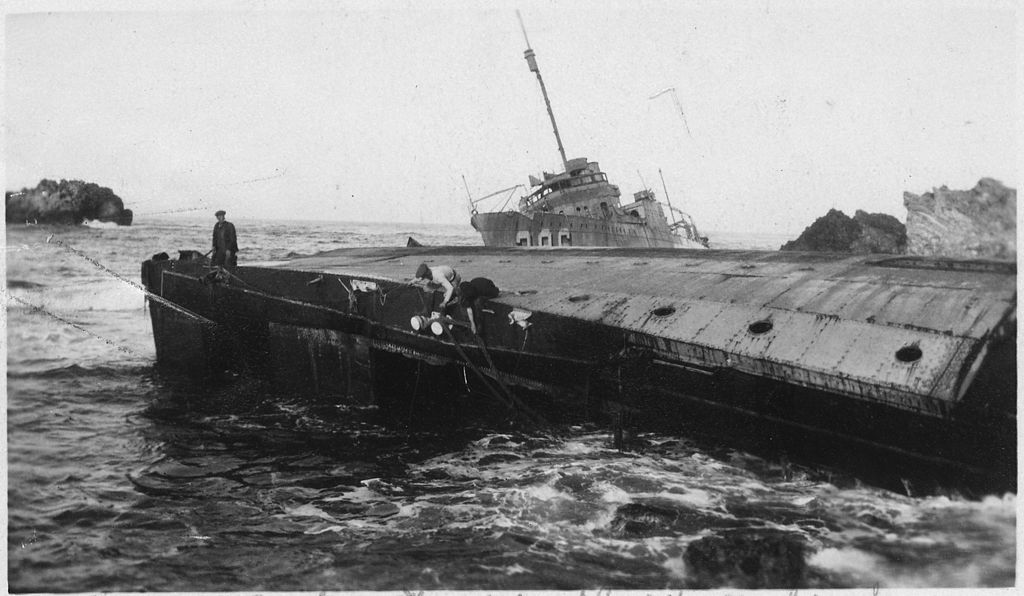
Because of powerful currents, tides, fog, and a rocky coastline, Surf Beach is a hazardous area for ships, especially before radar in the steam and sailing days.
Over thirty recorded shipwrecks along the Surf Beach coast, with over 60 to 70 lives lost.
The Honda Point Tragedy
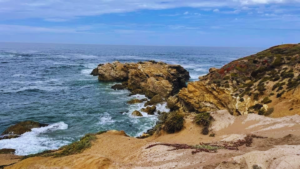
In 1923, twenty-three sailors died when seven US Navy Destroyers crashed off the shore at Honda Point near Surf Beach. This disaster was the most extensive peacetime loss of United States Navy ships.
Sitting 100 feet above where the shipwrecks occurred, a memorial plaque is closed to the public due to bluff erosion.
For more information on this tragedy, please click on the above link.
The Sibyl Marston Steam Schooner
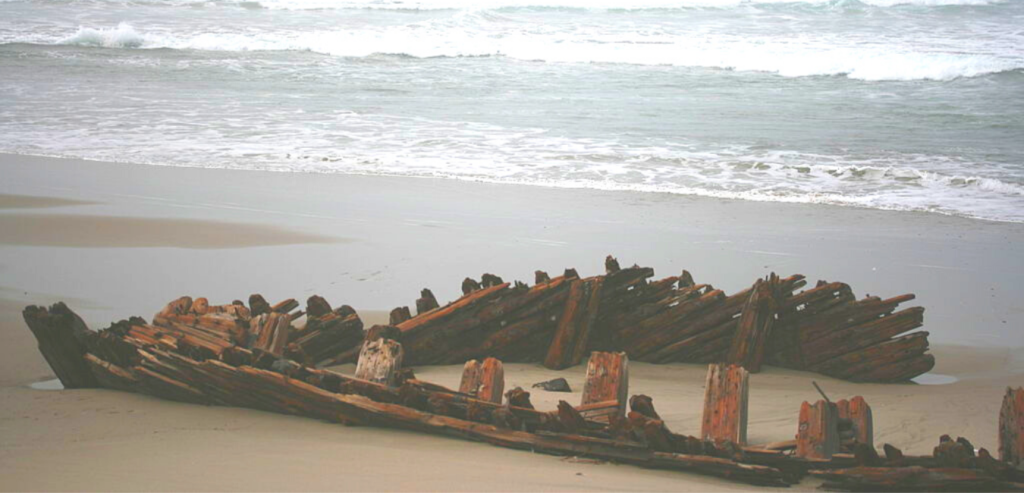
One shipwreck at Surf Beach can be seen in the winter when the tide is very low, as most of the sand washes away from within the hull.
The Sibyl Marston was the largest steam schooner built on the West Coast. In 1909, the schooner was making its way from Grays Harbor, Washington, bound south to Redondo Beach. The schooner was carrying over 1,100,000 million board feet of lumber when it ran aground in a storm, and tragically, two crew members were killed.
Residents from Lompoc salvaged the lumber that washed ashore and created a town lumberyard. I found an original newspaper article; please click the link if interested.
The schooner remains about a mile south of the entrance at Surf Beach.
One More Lompoc Secret!
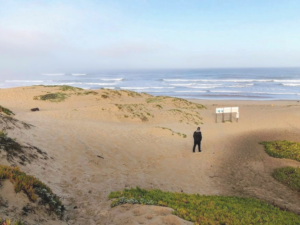
I recommend visiting Surf Beach and Ocean Beach Park in Lompoc, CA, if you are ever in the area.
There is a super-secret spot located about 3.3 miles south that not even some long-term residents know about- beach caves!
The caves are also accessible at Jalama Beach, with a much shorter trek, only one mile north.
Ensure that if you plan on visiting the caves, you check a tidal chart and only go if the tide is very low (a negative tide would work best).
One more thing. The photo that I posted above is of my Father-in-law and husband fishing. Do any Lompocians have an idea where these bluffs are located?
My Mother-in-law thinks she might have taken the photo at Wall Beach, which is now a private military beach found just north of the Santa Ynez River. What do you think?
Thank you for making it this far!
Until next time!

I have always had a deep-seated passion for the Ocean Environment which ultimately led me to receive a degree in Marine Biology. Living in the San Diego area for over 30 years, I have extensively explored the 70 miles of San Diego’s coastline, and I am here to share! Please use my website to your advantage and have a look around at all the wonders that the beaches of San Diego can offer you!
